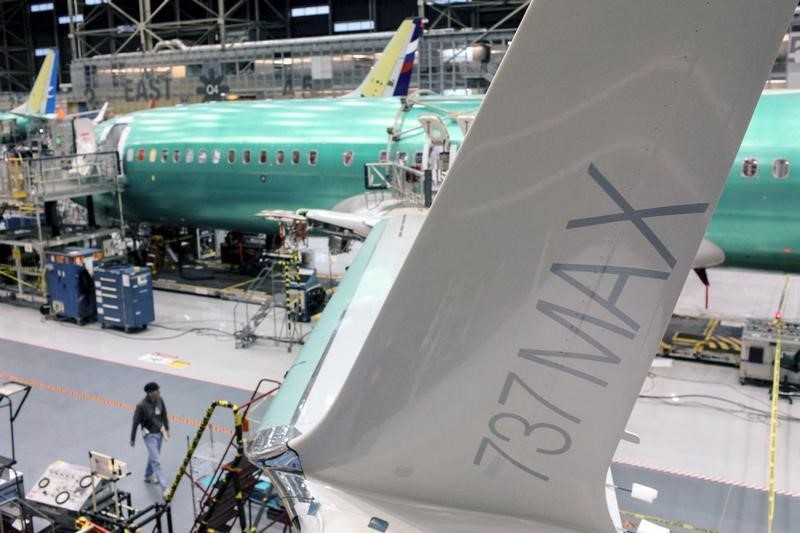Bitcoin price today: falls to 2-week low below $113k ahead of Fed Jackson Hole
Boeing (NYSE:BA) Co. shares have touched a 52-week low, dipping to $153.44, as the aerospace giant grapples with ongoing industry headwinds and internal challenges. This latest price level reflects a significant downturn from previous periods, with the company's stock experiencing a 1-year change of -22.69%. Investors are closely monitoring Boeing's strategies for recovery and stabilization in a market that remains volatile due to various global economic pressures and the complex landscape of the aviation industry.
In other recent news, Boeing faces significant challenges as it navigates a labor dispute involving 30,000 striking machinists, which has halted production of the 737 MAX and other aircraft. However, optimism is sparked as U.S. Transportation Secretary Pete Buttigieg expresses hope for a resolution, a sentiment echoed by the participants in the dispute. Concurrently, China Development Bank Financial Leasing has ordered 50 737 MAX 8 jets from Boeing, marking a significant stride for the aerospace giant. The new aircraft are scheduled for delivery between 2028 and 2031.
Despite these developments, Boeing announced that it will implement temporary furloughs affecting a large segment of its U.S. executive workforce due to the ongoing strike. CEO Kelly Ortberg and other leaders at Boeing will also undergo a corresponding reduction in pay for the duration of the strike. Meanwhile, contract negotiations between Boeing and the International Association of Machinists and Aerospace Workers have resumed, with federal mediators involved.
In addition, Alaska Airlines CEO Ben Minicucci acknowledged a "significant improvement" in Boeing's operations following an incident earlier this year. The airline is set to receive its 12th airplane from Boeing in 2024, indicating a continuation of their business relationship. These are recent developments in the company's ongoing saga, as it seeks to navigate through various challenges.
InvestingPro Insights
As Boeing Co . navigates through its current financial turbulence, several key metrics from InvestingPro provide a clearer picture of its market position. With a market capitalization of $95.25 billion, Boeing's scale remains significant in the aerospace and defense sector. However, the company's financial health is under scrutiny, as it is trading at a high EBITDA valuation multiple and has a negative P/E ratio of -27.5, reflecting analysts' concerns about its profitability. In the last twelve months as of Q2 2024, Boeing has not been profitable, which is further underscored by its gross profit margin of 10.46%—a figure that indicates struggles in maintaining profitability.
Investors should note that Boeing's stock price volatility is high, and the company has been trading near its 52-week low, at 57.78% of its 52-week high, which may signal a cautious approach to investment in the short term. Additionally, the lack of dividend payouts may affect the attractiveness of the stock to income-focused investors.
For those considering Boeing as an investment, the InvestingPro platform offers further insights. There are additional InvestingPro Tips available that could provide a more comprehensive understanding of Boeing's financial standing and future outlook. These tips include analysis on Boeing's ability to make interest payments on debt and its performance relative to industry peers.
This article was generated with the support of AI and reviewed by an editor. For more information see our T&C.
